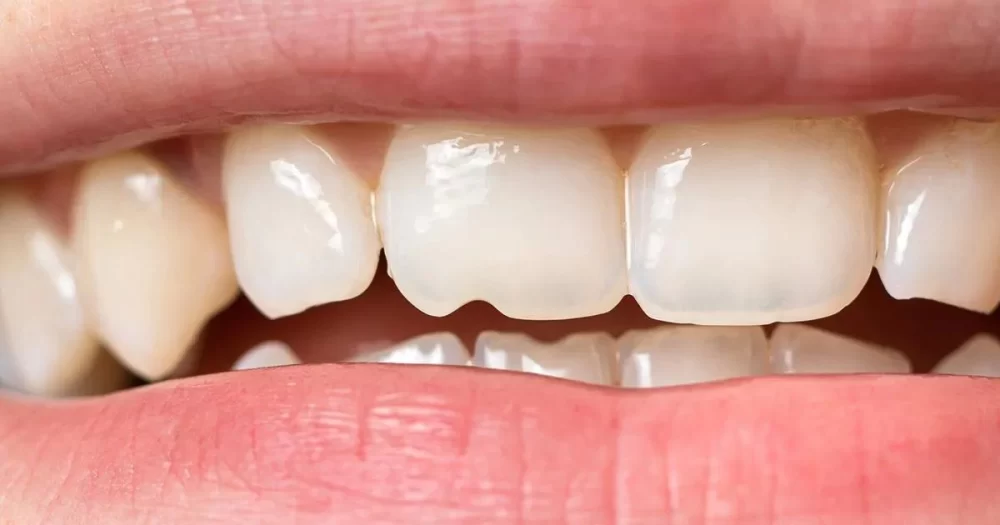
Signs of Teeth Grinding and How to Prevent It: A Comprehensive Guide
- Understanding Teeth Grinding and Bruxism
- Common Signs of Teeth Grinding
- Why Teeth Grinding Happens
- How to Prevent Teeth Grinding
- Treatment Options for Teeth Grinding
Teeth grinding, or bruxism, is a common condition that many people experience without even realizing it. In my own case, I didn't know I was grinding my teeth at night until my dentist pointed it out during a routine check-up. The term "bruxism" comes from the Greek word "brychein," which means "to grind," and it refers to the involuntary act of grinding or clenching your teeth, typically during sleep. While this can happen occasionally, if left untreated, it can lead to significant dental problems.
Teeth grinding can affect people of all ages, but it’s especially common in adults and children. It can happen during the day or night, but many people are unaware they’re doing it, which is why understanding the signs and symptoms is key to preventing damage.
One of the most concerning aspects of bruxism is that it often goes unnoticed by those who are affected by it. Since grinding usually occurs during sleep, it can be hard to detect without help. However, there are several common signs that can indicate teeth grinding:
- Worn-down teeth: If you notice your teeth are visibly shorter or have flat surfaces, it may be due to grinding.
- Sore jaw or facial muscles: Grinding can cause the muscles around your jaw to become tight, sore, or even painful.
- Frequent headaches: Tension headaches, especially in the temples, can be a result of teeth grinding.
- Tooth sensitivity: Grinding can lead to worn enamel, which increases tooth sensitivity, especially to hot or cold temperatures.
- Earaches: Bruxism can cause pain in the ears, as the jaw muscles are closely connected to the ear area.
If you experience any of these signs, it may be time to visit your dentist for an evaluation. Bruxism can cause lasting damage to your teeth, so catching it early is essential for preventing further harm.
There are several factors that can contribute to teeth grinding. Understanding the root cause can help you address the issue more effectively. Some of the common causes of bruxism include:
- Stress and anxiety: High levels of stress can lead to clenching and grinding, especially at night. I’ve noticed that during stressful times, I tend to grind my teeth more frequently.
- Sleep disorders: People with sleep disorders such as sleep apnea or snoring may be more prone to grinding their teeth while they sleep.
- Misaligned teeth: An incorrect bite or alignment issues with your teeth can lead to grinding as your mouth tries to adjust.
- Medications: Certain medications, especially antidepressants, can increase the likelihood of teeth grinding as a side effect.
- Genetics: Bruxism can sometimes run in families, suggesting a genetic component to the condition.
By identifying the underlying cause of your teeth grinding, you can address the problem more directly. For example, if stress is the cause, learning stress management techniques may help alleviate grinding at night.
Preventing teeth grinding starts with identifying the factors that are contributing to the behavior. In my case, once I knew that stress was a major trigger, I was able to implement a few lifestyle changes that helped reduce my grinding episodes. Here are some effective prevention strategies:
- Reduce stress: Managing stress through relaxation techniques, meditation, and regular exercise can help reduce the tension that often leads to teeth grinding.
- Use a night guard: A custom-made night guard is an effective way to protect your teeth from the damage caused by grinding during sleep. I personally use one, and it has helped me prevent further wear and tear on my teeth.
- Avoid stimulating substances: Cutting back on caffeine or alcohol, especially before bed, can help reduce teeth grinding. These substances can increase muscle tension and disrupt sleep patterns.
- Address sleep issues: If you have a sleep disorder, addressing it with professional treatment can help reduce grinding. I’ve heard from many people who’ve seen improvements after addressing their sleep apnea or insomnia.
- Practice good oral hygiene: Visiting your dentist regularly for cleanings and check-ups can help detect early signs of teeth grinding and allow for early intervention.
Taking proactive steps to reduce the causes and effects of bruxism can prevent long-term damage and protect your smile. Incorporating these habits into your daily routine can help you avoid the pain and expense associated with teeth grinding.
If you’ve already experienced significant wear on your teeth or jaw from grinding, there are treatment options available to help you repair the damage. These treatments may include:
- Dental crowns: If your teeth have been worn down, crowns can restore their appearance and function.
- Orthodontic treatment: In some cases, braces or other orthodontic procedures may be necessary to correct bite issues that are contributing to grinding.
- Botox: In severe cases of bruxism, Botox injections have been shown to reduce the intensity of muscle contractions in the jaw.
- Behavioral therapy: For stress-induced grinding, cognitive behavioral therapy (CBT) or relaxation techniques may help to manage triggers and reduce grinding episodes.
Consulting with your dentist or a healthcare professional is the best way to determine which treatment option is right for you. With the right approach, you can minimize the impact of bruxism on your dental health and enjoy a pain-free, healthy smile.
If you’re struggling with teeth grinding, I recommend visiting Dentistry Toothtruth for expert advice on managing bruxism and preventing further damage. They offer personalized guidance and treatment options to protect your dental health.







 Vicente Dental5.0 (79 review)
Vicente Dental5.0 (79 review) Bespoke Dental Co.4.0 (32 review)
Bespoke Dental Co.4.0 (32 review) Barkley Pediatric Dentistry4.0 (352 review)
Barkley Pediatric Dentistry4.0 (352 review) Super Kids Dental4.0 (1678 review)
Super Kids Dental4.0 (1678 review) Yonkers Dental Implants Center4.0 (63 review)
Yonkers Dental Implants Center4.0 (63 review) South River Dental- Clint Kroeker DDS5.0 (12 review)
South River Dental- Clint Kroeker DDS5.0 (12 review) The Importance of Oral Health Education During Pregnancy for a Healthy Pregnancy
The Importance of Oral Health Education During Pregnancy for a Healthy Pregnancy Best Tips for Brushing Your Teeth Properly for Healthy Gums: Essential Techniques for Oral Health
Best Tips for Brushing Your Teeth Properly for Healthy Gums: Essential Techniques for Oral Health Why Skipping Dental Checkups Can Lead to Bigger Oral Health Problems
Why Skipping Dental Checkups Can Lead to Bigger Oral Health Problems Advantages of Porcelain Dental Restorations
Advantages of Porcelain Dental Restorations How Can Diabetes Cause Tooth and Gum Problems? Preventing and Managing Oral Health Issues
How Can Diabetes Cause Tooth and Gum Problems? Preventing and Managing Oral Health Issues Healthy Habits for Promoting Good Oral Health and Hygiene: Tips for a Healthy Smile
Healthy Habits for Promoting Good Oral Health and Hygiene: Tips for a Healthy Smile